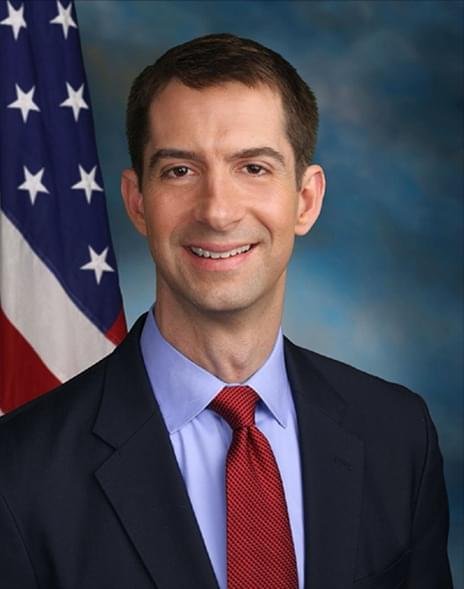WASHINGTON – U.S. Senator John Boozman (R-AR) joined Republican Leader Mitch McConnell (R-KY) in introducing legislation to block the Environmental Protection Agency (EPA) from enforcing a new rule tightening fine particulate matter (PM2.5) standards, which would further halt the growth of America’s manufacturing industry. Boozman, McConnell and 44 other Senate Republicans have filed a Congressional Review Act (CRA) resolution to prevent the EPA from implementing this new mandate.
The Biden administration’s EPA is tightening PM2.5 emissions for the first time in a decade, despite its own data reporting that concentrations have fallen by over 40 percent since 2000. Additionally, the vast majority of PM2.5 emissions come from sources like wildfires and dust from agriculture and roads that are not easily contained and – in some cases – impossible to control.
“Under this administration, the EPA has yet to find a burdensome regulation it didn’t embrace. Crippling the economy in countless rural communities despite evidence that current standards are delivering on cleaner air is absurd, will cost Americans’ jobs and drive up costs. I’m proud to join Leader McConnell and our colleagues to prevent this regulatory overkill from taking effect,” Boozman said.
“The Biden administration rolled out yet another job-killing mandate that would impose more unilateral economic pain at home. This one goes well beyond the regulatory standards of most European allies, let alone our top strategic competitor, China. The EPA’s new standard is so strict that upon its effect, 30 percent of U.S. counties, including many in my home state of Kentucky, would immediately find themselves out of compliance, grounding manufacturing growth to a halt. In order to keep up with President Biden’s new mandate, American manufacturers would be forced to import raw materials, like concrete and steel, for virtually any construction project. The kind of projects that grow our economy and supply good-paying jobs,” said McConnell.
Wildfires, road dust and other hard to control non-point sources now make up 84 percent of particulate matter, leaving states few options when trying to comply with EPA’s needlessly stringent new standards. Nearly 20 percent of counties in the U.S. could fail to meet the standard, resulting in permitting gridlock that threatens new infrastructure projects, expanded manufacturing and the economic growth that creates well-paying jobs. On top of that, counties with particulate matter levels just below the standards would also face restrictions on development. That’s why the U.S. Chamber supports Leader McConnell’s Congressional Review Act resolution of disapproval,” said Chad Whiteman, Vice President of Environmental and Regulatory Affairs of the U.S. Chamber of Commerce.
Boozman, a member of the Senate Environment and Public Works Committee, and other senators wrote EPA Administrator Michael Regan to urge the agency to rescind the proposed rule last September.
A CRA resolution is a tool used by Congress to eliminate onerous regulations imposed by the executive branch through an expedited procedure for consideration in the Senate. A joint resolution of disapproval under the CRA is afforded special privileges that bypass normal Senate rules and allow for a vote on the Senate floor. When a CRA resolution is approved by a simple majority in both chambers of Congress and signed by the president—or if Congress successfully overrides a presidential veto—the rule is invalidated.
Joining Boozman and McConnell on the CRA resolution are Senators John Barrasso (R-WY), Marsha Blackburn (R-TN), Mike Braun (R-IN), Katie Britt (R-AL), Tedd Budd (R-NC), Shelley Moore Capito (R-WV), Bill Cassidy, M.D. (R-LA), Susan Collins (R-ME), John Cornyn (R-TX), Tom Cotton (R-AR), Kevin Cramer (R-ND), Mike Crapo (R-ID), Ted Cruz (R-TX), Steve Daines (R-MT), Joni Ernst (R-IA), Deb Fischer (R-NE), Lindsey Graham (R-SC), Chuck Grassley (R-IA), Bill Hagerty (R-TN), John Hoeven (R-ND), Cindy Hyde-Smith (R-MS), Ron Johnson (R-WI), John Kennedy (R-LA), James Lankford (R-OK), Mike Lee (R-UT), Cynthia Lummis (R-WY), Roger Marshall, M.D. (R-KS), Jerry Moran (R-KS), Markwayne Mullin (R-OK), Lisa Murkowski (R-AK), Rand Paul (R-KY), Pete Ricketts (R-NE), Jim Risch (R-ID), Mitt Romney (R-UT), Mike Rounds (R-SD), Eric Schmitt (R-MO), Rick Scott (R-FL), Tim Scott (R-SC), Dan Sullivan (R-AK), John Thune (R-SD), Thom Tillis (R-NC), Tommy Tuberville (R-AL), Roger Wicker (R-MS) and Todd Young (R-IN).
Click here for text of the CRA resolution.






















